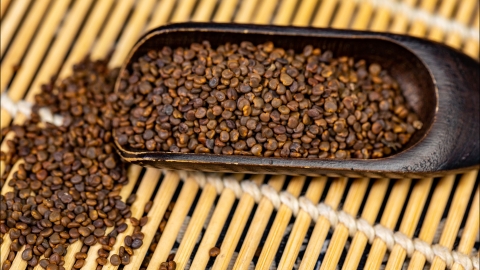Can Rehmannia glutinosa (Shu Di Huang) and Tribulus terrestris (Sha Yuan Zi) combined with Paeonia lactiflora (Bai Shao) replenish qi and blood?
Generally speaking, cooked rehmannia (Shu Di Huang) and cassia seed (Sha Yuan Zi) combined with white peony (Bai Shao) can help nourish qi and blood, but they should be used according to medical advice. Detailed explanation is as follows:

Cooked rehmannia is sweet, warm, and moist in nature, entering the liver and kidney meridians. It not only nourishes kidney yin but also replenishes blood, providing the material basis for generating qi and blood. It is effective in improving symptoms caused by blood deficiency, such as sallow complexion, dizziness, and palpitations. Although cassia seed is primarily known for nourishing the kidney and consolidating essence, it also enters the liver and kidney meridians. Since the liver and kidney are interrelated (liver and kidney share the same origin), its function of nourishing the liver can promote liver blood production, indirectly supporting the abundance of qi and blood. Additionally, its warm nature can help stimulate the circulation of qi and blood. White peony is sweet and sour with slightly cold properties, entering the liver and spleen meridians. It nourishes blood and regulates menstruation, directly supplementing liver blood. Since the spleen is the source of qi and blood generation, its action on the spleen meridian can synergistically enhance the function of the spleen and stomach in transforming and transporting nutrients, thus promoting the production of qi and blood. When used together, cooked rehmannia nourishes blood and enriches yin, cassia seed supports liver function and facilitates blood production, and white peony nourishes blood while enhancing the transformation and transportation functions of the spleen and stomach, collectively exerting the effect of replenishing qi and blood.
When using these three herbs together, dosages should be adjusted based on individual constitution. For individuals with yang deficiency constitution, the dosage of cassia seed can be appropriately increased to balance the herbal properties. Cooked rehmannia is rich and greasy in nature and excessive use may hinder the transformation and transportation functions of the spleen and stomach, thereby affecting the generation of qi and blood, so its dosage should be controlled. For those with cold deficiency of the spleen and stomach, warming ingredients can be combined to neutralize the slightly cold nature of white peony. Replenishing qi and blood should be a gradual process and should not be rushed. If discomfort occurs after taking the herbs, timely adjustments should be made.




